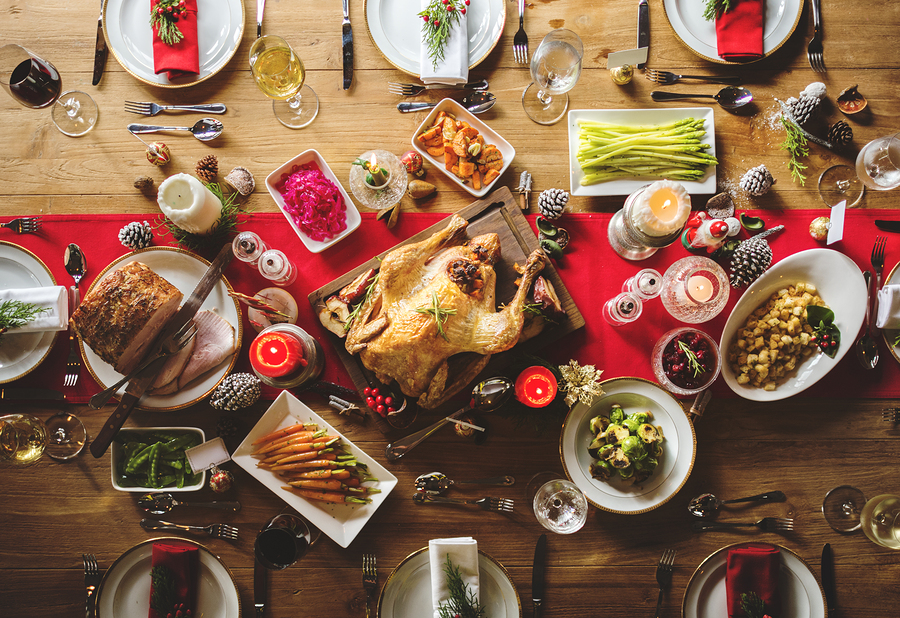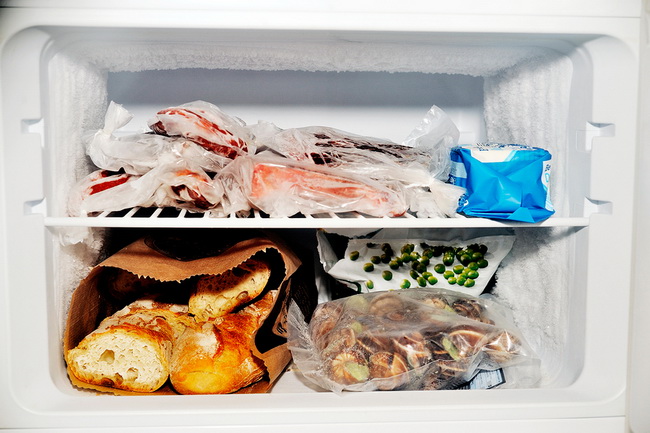- Make It Yourself Lavender Heart-Shaped Bath Bombs!
- 20 Things You Never Knew About “Down There”
- 12 Best Foods For Those Suffering From Arthritis Pain
- 12 Personal Hygiene Mistakes Almost Everyone Makes (Mom Never Told You About #4!)
- 15 Medicinal Plants And Herbs From The Cherokee People
- 12 Mind-Blowing Benefits Of Drinking Coconut Water During Pregnancy
- 12 Outstanding Winter Foods That Won’t Fatten You Up Like A Christmas Turkey
Priceless Tips For Avoiding Food Poisoning

Photo credit: bigstock.com
Food poisoning can put a damper on anyone’s day, especially at a party or holiday gathering. It’s a very easy problem to avoid, but it continues to affect millions of people around the world every day. If you eat food that is spoiled or prepared improperly, you can expect least of a day of nausea, diarrhea, and general misery. In the worst case scenario, you could end up hospitalized or dead. Luckily, this problem is relatively easy to avoid. Here we’ll explore the common causes of food poisoning and simple, practical steps you can take to reduce your chances of this happening to you.
1. Be mindful of where you eat
Some restaurants do not abide by food safety standards and prepare food that can make patrons sick. This is especially a problem in developing countries. To reduce your risk, use common sense when deciding where to eat and what to order. Check reviews of restaurants to make sure they have a good reputation—if customers are regularly getting poisoned there, they will surely develop a bad rap.
These are the general precautions one should follow to avoid food poisoning while eating out. But this can occur with meals you prepare yourself as well. Here are some guidelines to follow to protect yourself and those you are cooking for from food poisoning.
Continue to Page 2

Photo credit: bigstock.com
2. Wash your hands
This should step number one for reducing the spread of disease in all cases. If your hands are clean, you will not contaminate the food you are handling with dirt, germs, or anything else. Pretty simple, no? Common sense.
3. Don’t wash meat in the sink
Many people mistakenly believe that they should wash a roast or a turkey in the sink before cooking it. This is a bad idea because the water will simply splash germs all over the sink and the countertops, drastically increasingly the likelihood that others can unwittingly come into contact with bacteria and become ill.
4. Use separate cutting boards
This is a very common source of food poisoning: People chop raw meat on a cutting board and then using the same board to cut vegetables or some other items. Bacteria from the meat get onto the vegetables, which are then tossed into salads … and you can see where things go from there. Use a separate cutting board or plate for meat and other items. It’s a very easy way to avoid this problem.
5. Cook food properly
This is another no-brainer, but it’s so often overlooked. This is most important with meat and poultry. Cook meat thoroughly, and make sure it’s done all the way through to ensure the least risk of contamination. Follow the recipe and don’t “wing it” when it comes to preparing meat. It’s just not worth the risk.
Continue to Page 3

Photo credit: bigstock.com
6. Refrigeration and food storage
Refrigeration is one of the greatest inventions in human history. Don’t ignore something our ancestors could only have dreamed of having. Keep the temperature of your refrigerator set under 41 degrees Fahrenheit (5 degrees Celsius). Don’t leave perishable food items sitting out unrefrigerated for more than two hours. If the temperature in the room is higher than 90 degrees Fahrenheit (32.2 degrees Celsius), do not leave food out for more than one hour. Bacteria flourish in warm conditions, especially in meat. Don’t take any chances.
7. Be mindful of expiration dates
While some foods can last longer than their expiration dates would have you believe, there are certainly some items you do not want to take any chances with. These include dairy products, eggs, meat, poultry, and fish.
8. Follow the Golden Rule
The Golden Rule of avoiding food poisoning: “When in doubt, throw it out.” If something looks or smells “off,” just toss it. Don’t take the chance of eating something that might be spoiling. Trust your senses and your instincts; they are actually pretty good at detecting when food is going bad. If something has a foul or rancid look to it, trust your gut, and don’t put it in your gut.
READ ALSO: Are You Aware Of The Poison In Your Food? Infographic
Food poisoning is an awful thing to deal with, but if you follow these simple precautions, it’s extremely unlikely to affect you. Keep this in mind and you can enjoy anything you want.
References:
































